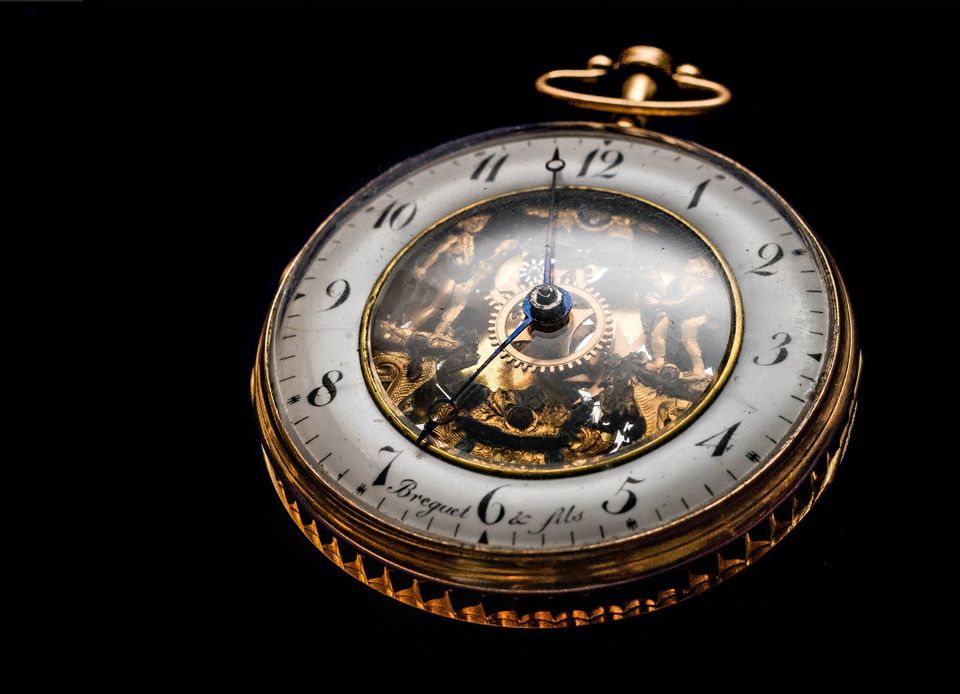Time: Find Meaning in Your Past to Save Your Future

I’m turning 29 soon. I was hoping to keep a realistic, level-headed perspective about my age. But no, it got under my skin.
My mind went into disaster mode.
Instead of feeling gratitude for the things I’ve done and experienced, I could only focus on the things I haven’t.
I was having spells where I would think it’s too late to do anything meaningful, too late to drink life’s nectar, too late to do, see, or feel. It’s over. All opportunity is gone. The future is determined only by what I’ve done, not what I’ve yet to do.
A little dramatic for a guy in his 20s, don’t you think? My rational mind could see that, but I couldn’t stop myself from feeling that way.
It’s because I was clinging to something. A chunk of my past is gone now, and I was so compelled by that past, I couldn’t look ahead. The inaccessibility of it was driving me insane. I felt like I left my potential in a tomb.
The time period I was reaching for was, for lack of a better word, dead.
Playing Our Hands
“And well, he’s on the table
And he’s gone to code
And I do not think, anyone knows
What they are, doing here.” — Third Eye Blind
Successful people like to say time is your most precious resource. I agree, but that paradigm can create a lot of pressure.
Even megastar entrepreneur Tim Ferris got caught up in his expectations of time. He said this when he was around my age:
“If I’m not famous by 30, I might as well put a bullet in my head.”
He admits this mindset came from insecurities and personal traumas (he did, however, go on to be a New York Times best-selling author at 29).
Is anyone sure of every decision they’ve made? Did anyone take all the right steps, say all the right things, take all the right risks, at all the right times?
Do you know how they say we’re all just making it up as we go along? Well, we are.
Life is improvised, and we’re all just playing our hands. That means eventually we’re going to play our hand poorly, and end up wasting our time. Maybe it’s because of fear, or a rotten relationship, or recklessness, or laziness.
Whatever the cause, eventually you’re going to squander an opportunity, and get nothing in return for the time you invested.
Once you have the regret of lost time, what do you do with it?
Honestly, you mourn it, as you would a person.
The Sixth Stage of Grief and Time
Here are the five stages of grief applied to lost time.
- Denial
I still have time. It’s not over. Why would it be over? - Anger
How could I have wasted all those years like that? You idiot. How are you ever going to be happy now? - Bargaining
If I could have just acted, everything would have been different. - Depression
I can’t handle this. There is no getting it back. I can’t get it back. - Acceptance
The time isn’t coming back. I have to move forward.
Usually, you don’t hear what happens next, but there is a final stage of grief. The sixth stage is finding meaning after your loss.
- This is the stage you derive your lessons.
- This is the stage you make resolutions.
- This is the stage you rethink your values.
- This is the stage you realize worrying about what you failed to do is a distraction from what you can do now. Simply put, it’s a waste of time.
Everyone’s Mutual Friend, the Reaper
You can’t talk about time without talking about death. I’ve been trying to keep him in mind lately.
Telling someone to live every day like it were their last is…bad advice. You’d probably just skip work and do all kinds of weird shit. Practicality and restraint would be out the window, and you’d end up burning up through all your resources. But then again, you might love every second of it.
There’s a difference between knowing you are going to die today and knowing you could die today. Knowing, really knowing, that nothing is granted to you, and opportunity can be ripped from your fingers at any moment, is not a reason for dread. It’s an impetus to live.
It’s a reason to align your priorities to what’s most important to you.
Many of the greatest philosophers understood the value of being aware of death (Memento Mori). According to The Daily Stoic:
- In Meditations, Marcus Aurelius wrote to himself: “You could leave life right now. Let that determine what you do and say and think.’’
- Seneca urged in his Moral Letters to Lucilius, “Let us prepare our minds as if we’d come to the very end of life. Let us postpone nothing. Let us balance life’s books each day…The one who puts the finishing touches on their life each day is never short of time.”
- The Stoics used Memento Mori to invigorate life, and to create priority and meaning. They treated each day as a gift, and reminded themselves constantly to not waste any time in the day on the trivial and vain.
If you look to the past and see nothing but dead time, let that give you a reason to restructure the time you have remaining.
Spend Your Time with a Vengeance
“I wish it need not have happened in my time,” said Frodo.
“So do I,” said Gandalf, “and so do all who live to see such times. But that is not for them to decide. All we have to decide is what to do with the time that is given us.” – Gandalf
Avenge your lost time by living your life knowing what time is worth.
If you do so, you enhance the quality of the time you have. You’ll live more in five years than most people do in twenty. That’s my goal, at least.
When I think of wasted time, I picture a life that’s dry, passionless, meaningless, and not a hell of a lot of fun. It would certainly meet the world’s expectations.
“Living” is going to have a different definition for everyone. But the sooner you align yourself to the things you value most, the sooner you’ll stop wasting time. Maybe that’s the moment life begins.
I’m not some enlightened individual who always knows the best way to live and never falls short of his ideals. But if I’m lucky enough to be lucid on my deathbed, I want to look back and feel gratitude, pride, and satisfaction. That’s probably the best you can hope for.
No matter how you choose to live, someday you won’t. So what’s worth living for most? What is time well spent? What is a life well lived?



